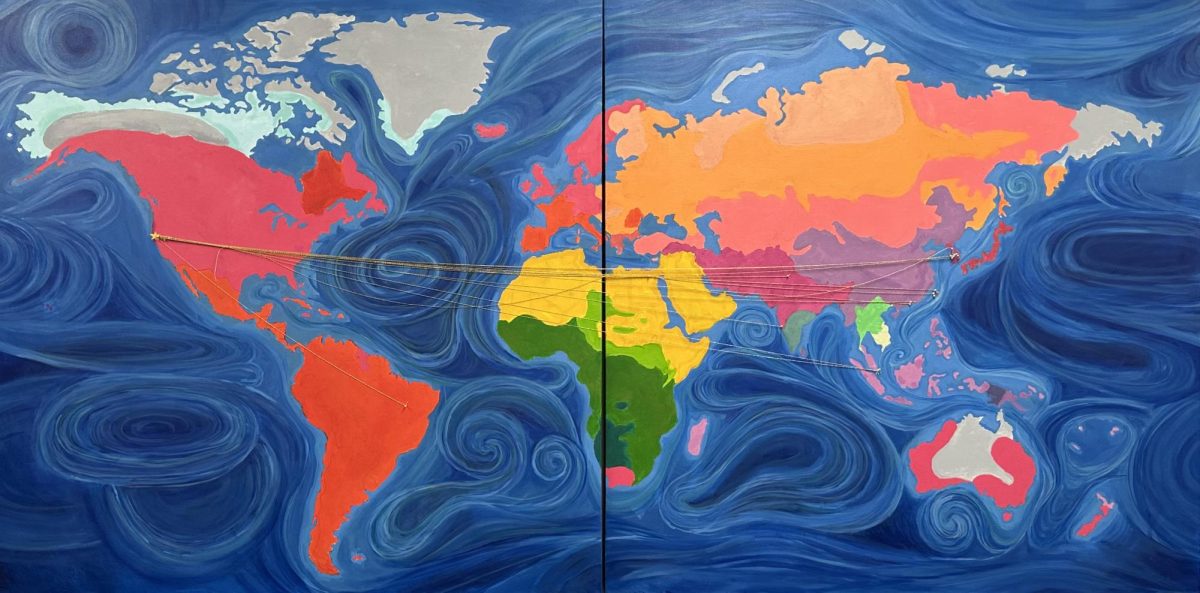The tumultuous college admission process, filled with looming deadlines, bombards millions of American students each year with stress, uncertainty and the pressure to stand out in a sea of applicants. With admission rates declining and tuition prices rising, it has become increasingly difficult for students to attend their ideal college. Subsequently, numerous students consider colleges outside of the U.S. as a potential pathway.
According to MVHS College & Career Advisor Rogelio Calderon, colleges in Japan, the Middle East, Korea and the UK are popular locations that MVHS students are considering. He says that there are four main reasons why students are shifting towards going abroad for college.
“One reason that comes up is the cost, just the fact that tuition abroad is significantly cheaper, almost free,” Calderon said. “Another reason is familiarity with the culture. Some students may have a dual citizenship in that country or might have been born there or have family ties and connections to that country. A third reason is that those schools might be a little less competitive for some medical school programs and students might apply abroad to those programs. The fourth is that students want to be immersed with something that’s not U.S. culture and want to take advantage of being abroad.”
Alternatively, science teacher James Birdsong’s daughter, Gillian Birdsong, who is a college freshman at the University of British Columbia (UBC) and previously attended Lincoln High School in San Jose, mentions that she decided to go abroad because UBC’s forestry program interested her. When applying to schools abroad, Birdsong recounts that, while her application to Canadian schools was similar to U.S. schools, choosing her major had significant differences. She highlights that she could only choose a certain major to apply to and it would be reviewed by the teachers who teach that major instead of typical admission officers.
“If at a U.S. school, you want to do math, then you apply to be a math major,” Birdsong said. “But at UBC, if you want to be a math major, then you would apply into the math faculty. Or if you want to major in biology, then you apply to the science faculty and you can’t actually major in between those disciplines, which is very different.”
Due to the application differences that colleges abroad may have, Calderon acknowledges that resources provided at MVHS, which cater towards U.S. colleges, may not offer students applying overseas the same level of support, so students need to be more proactive if they intend to apply abroad.
“Naviance does have some limitations,” Calderon said. “It includes some universities abroad. But again, the data in there would be limited, because the focus is on U.S. universities. If a student is thinking of applying outside of the U.S., a lot of times, those students who already come in with that mindset have already done a lot of the work.”
Senior Tyler Rose, who intends to apply to colleges in China and Singapore, agrees that the platforms the school uses have insufficient support for his applications. He believes that MVHS Counseling including more resources for students applying overseas would be beneficial for him and others applying abroad.
“There should at least be one optional information section about international schools, because I do think that not many people apply to them,” Rose said. “It’s a smaller audience, but there should be some resources, including something on the Counseling Schoology.”
Some colleges take an applicant’s country of origin into account when deciding admission status. For international students applying to schools abroad, some institutions may offer higher acceptance rates compared to domestic applicants, providing them with a potential advantage. Birdsong and Rose both feel that admission into some Canadian and Chinese schools may be easier than U.S. schools.
“Apparently, for Chinese schools like Tsinghua [University], international students have a 40% acceptance rate and then for the Chinese kids, it’s like the top 1% to get into that school,” Rose said. “But, for international school kids applying to American schools, the acceptance rate is lower.”
Beyond an exhausting application process, the transition to living abroad can be even more tiring. When Birdsong came to Canada, she found that the logistics of staying abroad were far harder to figure out than adjusting socially.
“The hardest thing about adjusting has mainly been getting all the new things that come with living in a new country, like getting a new bank account, an ID, medical insurance, that kind of thing,” Birdsong said. “But social-wise, it’s really cool to feel this sense of community with other people from such different places. You could use something you can relate to other people instantly and it’s really nice to have conversations with people about their hometown and how things are different where they’re from.”
Despite all the challenges Birdsong faces when studying abroad, she finds that her choice to study at UBC has been rewarding as she enjoys conversing with students from different backgrounds. Birdsong mentions that due to Canada having its Thanksgiving in October rather than in November like America, she only has solid plans of visiting her family during Christmas. Even though she has been gone from her family for one and a half months now, she has not felt the effects of living apart from them.
“I haven’t had any huge [feelings of] homesickness. It comes more in smaller moments.” Birdsong said. “For example, I went to the university jazz club’s performance and it really reminded me of home because my high school had a really good jazz band. So sometimes I’ll stumble across things that remind me of home and I’ll get a little homesick, but overall, it hasn’t been debilitating.”
This story was originally published on El Estoque on October 16, 2024.




































